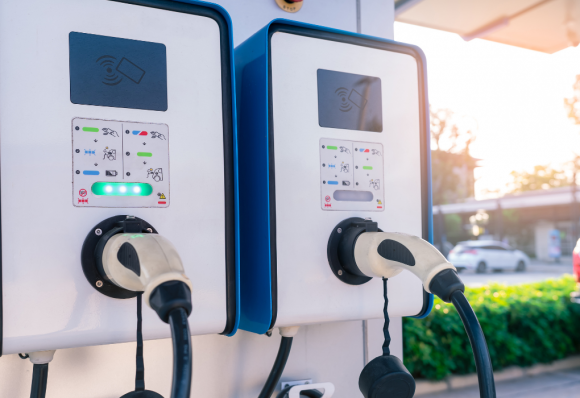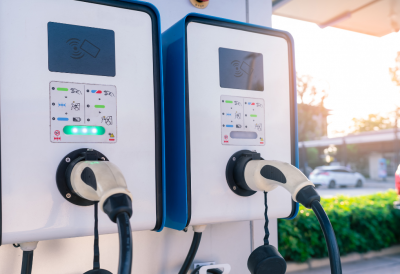In this cosmic landscape, finding the perfect blend of electrolyte materials for batteries is like searching for a needle in a haystack. But Aionics has emerged as the intrepid hero in battery tech development. It attempts to streamline the process of finding the right molecule combinations using artificial intelligence..
Employing electrolytes
Aionics, founded in 2020 and armed with a potent AI toolkit, is developing EV batteries using… Electrolytes, of all things.
“Lithium-ion batteries contain three critical building blocks. There are two electrodes, an anode (negative) on one side and a cathode (positive) on the other. An electrolyte typically sits in the middle and acts as the courier to move ions between the electrodes when charging and discharging,” TechCrunch explains.
These electrolytes are nestled between battery electrodes, facilitating the mechanism of ions charging and discharging. However, finding the perfect balance of molecules to develop a powerful battery is still challenging.
And also AI
The company also employs AI-accelerated quantum mechanics, which enables them to experiment with billions of known molecules at an impressive speed.
It has also embraced generative AI, which crafts new molecules tailored for specific applications. These generative AI models are trained on existing battery materials data, and then Aionics engineers match molecules using the data.
ALSO READ: Biden to pass “responsible AI” law
It has also managed to train language models from OpenAI and ChatGPT using textbooks. Now, scientists can interact with this AI, asking nuanced questions and narrowing down potential formulations for developing this technology.
Finally producing a battery
Once Aionics identifies potential molecular matches for its battery tech, it sends samples to its clients for validation.
If it doesn’t work on the first try, new trials are conducted until it finds the perfect match. When a match is found, all systems go – scaling up manufacturing and ushering batteries to market.
Interestingly, Aionics isn’t confined to just batteries. It has ventured into territories like cement, using renewable electricity and raw materials to create zero-emissions products.
The next generation
AI as a business tool has made it into so many industries that it’s become hard to track. Unsurprisingly, the technology is being used to develop new sustainable innovations.
Of course, the tech is also used in the logistics and freight industries to optimize operations.
Uber Freight, for example, is integrating AI-powered software into its services. This tool helps improve visibility and control across various transportation modes globally. It’s also launched Insights AI, a generative AI tool designed to transform decision-making in logistics.
Leveraging large language models (LLMs), Insights AI generates insights from Uber Freight’s vast transportation data, offering granular tactical views and strategic analyses for transportation teams. Combined with other models like a sophisticated ETA model and Probability of Late Arrival (PLA) model, Uber Freight can now optimize its network and enhance service quality.











